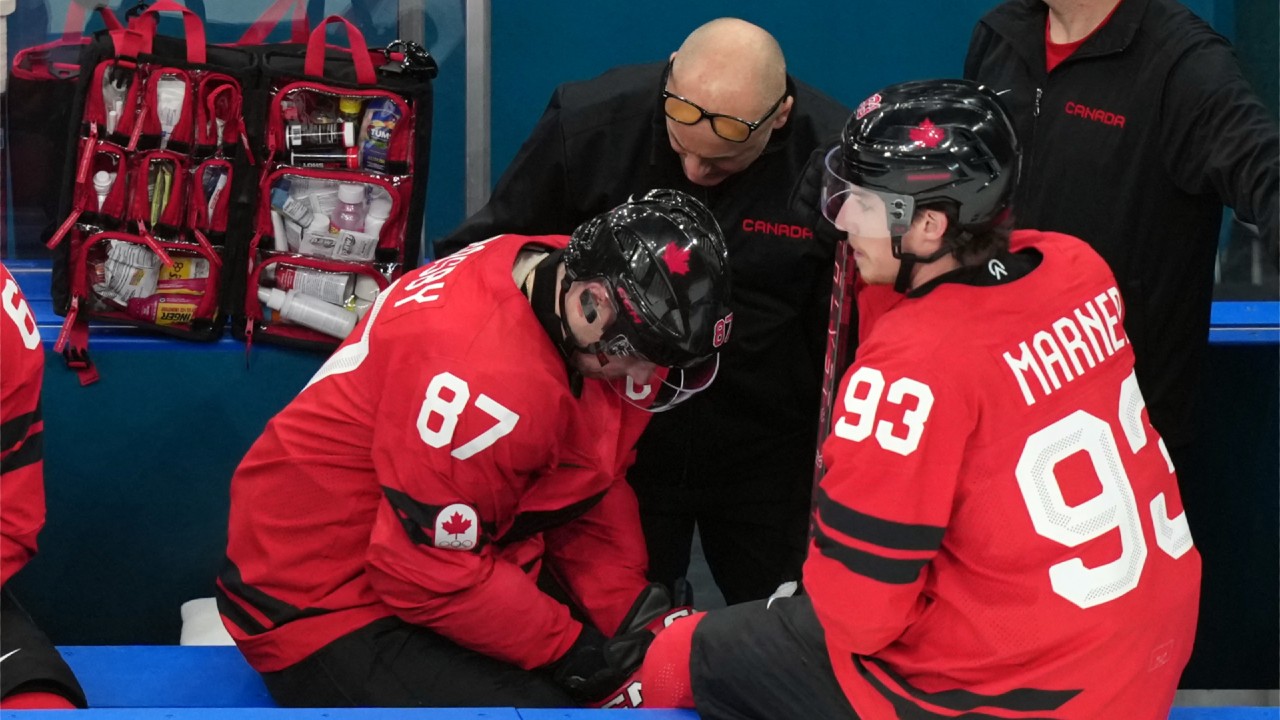
The International Olympic Committee urged sports federations and event organizers to not invite or allow the participation of Russian and Belarusian athletes and officials in international competitions, its executive board said Monday, in a decisive recommendation that comes as the 2022 Paralympic Games are set to begin.
The IOC’s rebuke of Russia’s unprovoked invasion of Ukraine, one of the clearest denunciations by a sporting entity since the conflict began, also withdrew the Olympic Order — the highest award it can give, recognizing efforts worthy of merit in the cause of sport — from “all persons who currently have an important function in the government of the Russian Federation,” including president Vladimir Putin.
The IOC also reiterated its urgent recommendation not to organize any sports events in Russia or Belarus, which was first issued on Feb. 25.
“The Olympic Movement is united in its mission to contribute to peace through sport and to unite the world in peaceful competition beyond all political disputes,” the IOC wrote in a statement. “The current war in Ukraine, however, puts the Olympic Movement in a dilemma.
“While athletes from Russia and Belarus would be able to continue to participate in sports events, many athletes from Ukraine are prevented from doing so because of the attack on their country.”
When an outright barring of Russian or Belarusian athletes is not possible due to “organizational or logistical reasons,” the IOC called on sports federations to do “everything in their power” to ensure no athlete or official from Russia or Belarus participates under the name of their countries. Those athletes would be accepted as neutral athletes or neutral teams, with no national symbols, flags or anthems, the IOC said.
At this time, Russian and Belarusian athletes have not been barred from participating in the 2022 Paralympic Games, which are set to begin on March 4, with the IOC saying that exceptions for organizational or logistical reasons were considered with the Games in mind.
The IOC’s statement comes as the crisis in Ukraine remains dire. Several attacks on cities around the country have unfolded since the invasion started five days ago, when president Putin declared the start of a “special military operation” in Ukraine on Feb. 23, signalling the beginning of a conflict many had feared would arrive for months as Russia amassed a military presence near the Ukrainian border.
Belarus is an ally of Russia in the invasion, and has been a launch point for troops throughout the baseless military operation. Aleksandr Lukashenko, the president of Belarus, has said he sees Russia and Belarus as not only neighbours and allies, but a single nation with the shared aim of warding off Western influence in former Soviet lands.
The people of Ukraine have waged a fierce defence of their country, slowing the Russian forces as they bear down on Kyiev, the capital of Ukraine. As of Sunday, at least 352 civilians, including 14 children, have been killed since the invasion began, according to the Ukraine Interior Ministry.
“The IOC EB reaffirms its full solidarity with the Ukrainian Olympic Community,” the IOC wrote. “They are in our hearts and thoughts. The IOC EB commits to continue and strengthen its efforts for humanitarian assistance. Therefore, the IOC EB has today established a solidarity fund.”
Sports bodies around the world have attempted to navigate the crisis, levying sanctions and condemnations against the Russian invasion with varying degrees of severity.
In European club football, UEFA pulled the 2022 Champions League final from St. Petersburg, moving it to Paris, and said on Friday that Russian and Ukrainian teams in its competitions must play home games in neutral countries. UEFA allowed Spartak Moscow to continue playing in the second-tier Europa League’s round of 16.
FIFA, the highest governing body of soccer in the world, announced several measures on Sunday that would take effect for Russia’s World Cup qualifying playoff next month — including a ban on the use of the country’s name, flag and anthem, as well as using a neutral site to play games — though it stopped well short of expelling Russia from qualifying altogether.
FIFA’s decision drew swift backlash from European nations and a change to its stance could come as soon as Monday, according to a report from Reuters.
Karl-Erik Nilsson, the Swedish soccer federation president who is also the senior vice president at UEFA, said Sunday he expected a “sharper stance” from FIFA.
Poland, in protest of the response, said it would refuse to play Russia in their World Cup playoff semifinal, which is currently scheduled for March 24.
“Today’s FIFA decision is totally unacceptable,” Polish football federation president Cezary Kulesza tweeted. “We are not interested in participating in this game of appearances. Our stance remains intact: Polish National Team will NOT PLAY with Russia, no matter what the name of the team is.”




